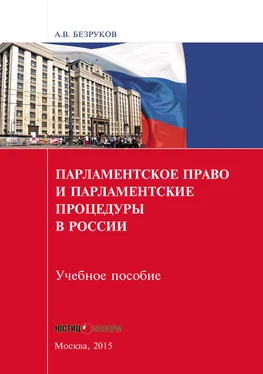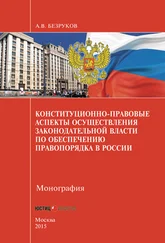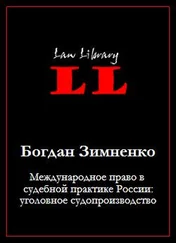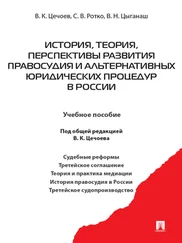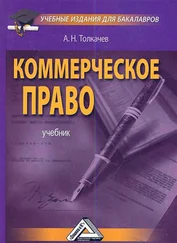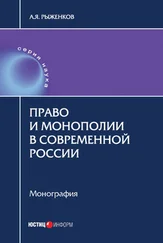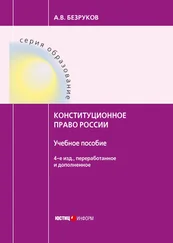Constitution of the Russian Federation declares that Russia is a state governed by the rule of law (Art. 1). According to modern political and legal doctrine the main distinguishing feature is the rule of law and the prevalence of principles of law, not the motives of political expediency in the public domain.
Organizational and legal bases of the Parliament, and the process of establishing legal rules may not be arbitrary, subjective, it must be based on accepted and fixed constitutional rules that the state must comply with.
In the system of constitutional and legal relations the central place is held by parliament and parliamentary procedures, they are the subject of quite a young sub-sector of constitutional law – parliamentary law.
In the current Constitution of the Russian Federation formation, structure and functions of the Federal Assembly are discussed in Chapter 5. The very location of it in the Constitution of the Russian Federation – after the chapter “President of the Russian Federation» and before the chapter «Government of the Russian Federation» – indicates the value of the representative and legislative power, its paramount role in the system of separation of powers.
Legislative activity, being the main form of lawmaking, is inherent to many public authorities as they carry out activities related to the implementation of both legal rules and their creation. And law, as rightly pointed out by the President of the Russian Federation, should be adopted with the active involvement of representatives of non-State actors, public chambers.
Formation of the legislation requires the solution of a number of issues, both theoretical and practical. Identified is the need for demarcation of legislative powers between the federal center and the regions, as well as scientific understanding of the question of the relationship of regional and federal legislation and many other problems.
The Constitution of the Russian Federation has given subjects of the Russian Federation the right to exercise their own legal regulation. Due to the fact that the regional legislation exists for only a few years, the actual problem is the development of standardized procedures for its establishment and its good quality.
The subject-matter of Parliament and legislative system of constitutional law is relevant today as ever – the state is challenged to strengthen its legal framework.
This manual is based on the principle of the general to the specific: it initially discusses the concept, the essence, the subject of parliamentary law, reveals the concept and character of Parliament, then considers the legal status of the Federal Assembly of Russia, its chambers. Separately considered is the competence of each of the chambers of the Russian parliament, the concept, types and forms of organization of parliamentary control, and the legal status of legislative bodies of subjects of the Russian Federation. Then revealed are the concept, implementation problems and the stage of the federal legislative process, to complete the analysis with the features and some of the problems of regional legislative process, draw attention to the legislative practice of Moscow.
Глава 1
Парламентское право и конституционно-правовая характеристика законодательных органов в России
1.1 Парламентское право, парламент и парламентаризм
Парламентское право – подотрасль конституционного права России, представляющая собой систему правовых норм, регулирующих общественные отношения в области правового статуса парламентских органов и законодательных процедур в Российской Федерации [2] Определение парламентского права и его выделение как подотрасли конституционного права относительно недавно сформировано в литературе. Парламентское право России / под ред. И.М. Степанова, Т.Я. Хабриевой. – М., 1999. – С. 12; Парламентское право России / отв. ред. А.Н. Кокотов. – Екатеринбург, 2008. – С. 6; Парламентское право России / под ред. О.Н. Булакова. – М., 2006. – С. 8–9.
. Некоторые авторы выделяют его материальную и процессуальную составляющую [3] Богданова Н.А. Парламентское право в системе конституционного права. – С. 31–32.; Хабриева Т.Я. К вопросу о месте российского парламентского права в системе права. – С. 23; Саликов М.С. Парламентское процессуальное право – подотрасль конституционного процессуального права. – С. 33–37 // Парламентские процедуры: проблемы России и зарубежный опыт. Материалы научной конференции / под ред. С.А. Авакьяна. – М., 2003.
.
В современный период представляется затруднительным рассматривать парламентское право в качестве самостоятельной полноценной отрасли российского права, поскольку содержательно оно включено в предмет конституционного права, является его неотъемлемой частью. Справедливо отмечает С.А. Авакьян, что вопрос о существовании такой отрасли права является весьма дискуссионным, многие исследователи обоснованно рассматривают проблемы российского парламентаризма в рамках конституционного права России [4] Авакьян С.А. Федеральное Собрание – парламент России. – М., 1999. – С. 8–9.
.
Вместе с тем парламентское право может рассматриваться как достаточно сформированная и динамично развивающаяся отрасль права, что не противоречит его характеристике как подотрасли конституционного права. Парламентское право, наряду с избирательным правом и конституционно-процессуальным правом, развивается в фундаментальной системе конституционного права, выступает одним из крупных его образований.
Важно определить предмет парламентского права, который составляют отношения в области организации и деятельности парламентских органов и учреждений. Если определить структуру предмета, то можно взять за основу подход, предложенный А.Н. Кокотовым, который в него включает:
Читать дальше
